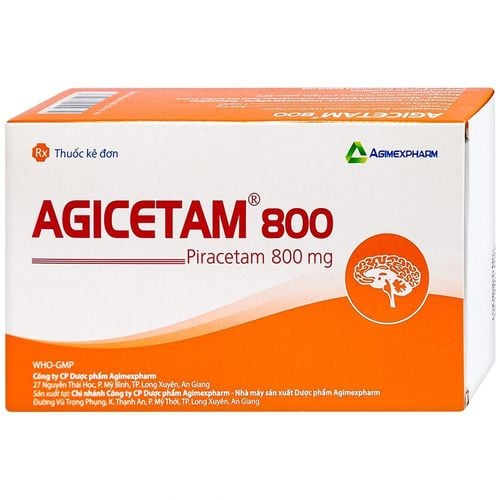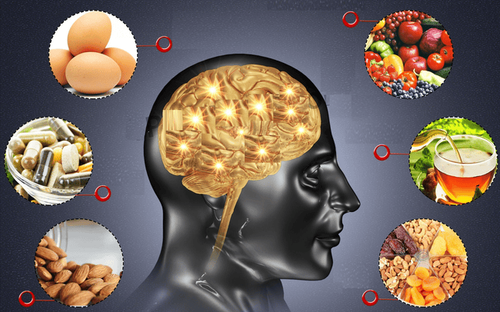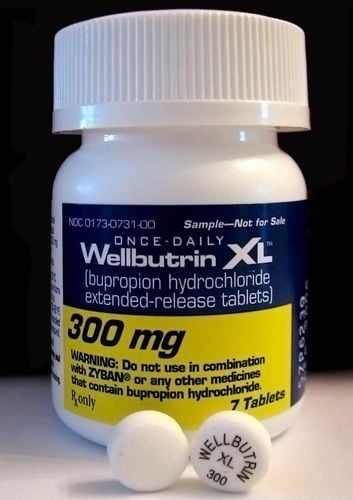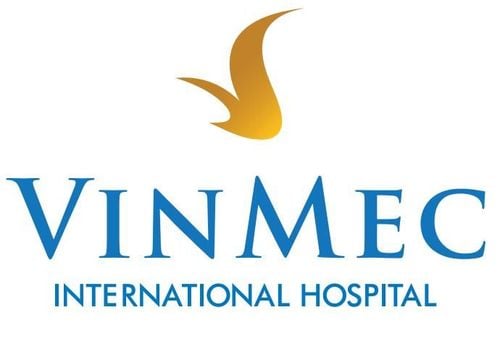This is an automatically translated article.
Experts are still unable to determine the limits of the brain's capabilities. Some experts believe we may never understand it all. But research evidence supports the existence of one of the brain's most important processes, neuroplasticity.
1. Is it possible to restore brain function?
"Neuroplasticity" refers to the brain's ability to restructure as it recognizes a need to adapt. In other words, the brain can continue to grow and change throughout life.
If brain injury after a car accident affects your ability to speak, you are not completely speechless forever. Therapy and rehabilitation can help the brain relearn this ability through repair.
Neuroplasticity also seems to hold great promise as a potential therapeutic driver for certain mental health conditions.
Experts believe that the negative thought patterns that occur with depression can be the result of impaired or disrupted neurological processes. Therefore, active brain rehabilitation exercises can help improve people's health.
2. Exercises to restore the brain
Restoring your brain sounds complicated, but it's totally something you can do at home.
2.1. Playing video games helps restore the brain There's still a lot of debate about the potential benefits and risks of video games, but if you enjoy gaming, there's some good news for you. Research shows that gaming can have many cognitive benefits.
Gaming-related benefits include improvements in:
Motor coordination; Visual recognition and spatial navigation; Improve memory and reaction ability; Enhance reasoning, decision-making and problem-solving skills; Increased resilience; Increase the ability to cooperate and participate in group activities. In short, when you play video games, you teach your brain new skills. These effects can improve your gameplay, they certainly also bring benefits to your life like:
Learning how to recover from failure in a game can help you get out of defeat for good than; Exploring different solutions to solving a task in the game can help you improve your creative thinking. Different types of games may provide different benefits:
3D adventure games appear to contribute to improved memory, problem solving and situational recognition; Puzzle games that enhance problem solving, brain connectivity and spatial prediction; Playing rhythmic games, like dance or exercise video games, can help improve memory and visual-spatial attention.
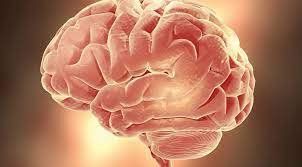
Chơi trò chơi điện tử giúp phục hồi não bộ
These effects will appear after about 16 hours of gameplay. Of course, this does not mean that you have to play for 16 hours straight, which is not recommended. But adding a few hours of weekly gaming to your leisure time can be a great way to improve mental toughness.
2.2. Learning a new language restores the brain Have you ever considered learning another language? Maybe you think a second (or third) language can boost your career opportunities or you want to learn it just for fun.
In either case, learning a foreign language is a restorative exercise for your brain. There is a lot of evidence that acquiring a new language improves cognitive function.
In a 2012 study, researchers looked at 10 international students who were native English speakers studying German in Switzerland. After 5 months of intensive language study, their German proficiency increased and so did the density of gray matter in their brains.
Gray matter is present in many important regions of your brain, including regions associated with:
Language; Attention; Celebrate; Emotions; Movement skills. Increased gray matter density can help improve your function in these areas, especially as you age.
In fact, researchers believe that bilingualism may provide some protective benefits against cognitive decline. Learning a language at any stage of life can help slow future age-related decline, including symptoms of dementia.
Another 2012 study found evidence to support the idea that learning a new language increases gray matter density and neural plasticity.
After 3 months of intensive research on a new topic, 14 adult interpreters saw an increase in both gray matter density and hippocampal volume. The hippocampus plays an important role in helping you have a long-term memory.
According to a 2017 study, learning a second language as an adult can also boost white matter, helping to facilitate brain connections and communication between different brain regions.
Learning a new language at any age can result in:
Better problem solving and creative thinking skills; Improve vocabulary; Better reading comprehension; Increase multitasking.

Học một ngôn ngữ mới giúp phục hồi não bộ
2.3. Create some music to help restore the brain Music has a number of benefits for the brain, it can help improve:
Mood; Ability to learn and remember new information; Concentration. Music therapy also helps slow cognitive decline in older adults.
Research from 2017 suggests music, especially when combined with dance, art, gaming and exercise, helps promote neuroplasticity. Music can improve movement and coordination and may help boost memory. But it doesn't just help prevent additional cognitive decline. It can also help reduce emotional distress and improve quality of life.
According to a 2015 review, practicing music also has the same benefits as exercise to increase neuroplasticity, helping to restore the brain. Learning to play music at an early age can help protect you against age-related cognitive decline and lead to improved cognitive performance in adulthood.
Research also suggests that musicians often have the following characteristics:
Better visual and audio perception; Better ability to focus and pay attention; Better memory; Better movement coordination. It's never too late to learn how to play a new instrument. Online tutorials can help you get started, especially if you don't want to learn too much. Even listening to music more often can help boost the brain's neuroplasticity. So put on a playlist of your favorite music, it's good for your brain.
2.4. Travel restores the brain If you love to travel, here's one more reason to get out and explore somewhere new: Traveling can help boost cognitive flexibility, inspire you and enhance your creativity.
Experiencing new surroundings and surroundings can also help you learn about different cultures and become a better communicator, both of which can have additional cognitive benefits.
Visiting new places can also help widen your overall worldview, which can help open your mind and give you a new perspective on things close to you like family, like goals career goals, friendships or personal values.
If you can't travel right now, don't worry. You can still take yourself on a tour closer to home by:
Walk through a new neighborhood; Buy groceries you need in a different area than where you live; Long walk; Virtual travel on YouTube.
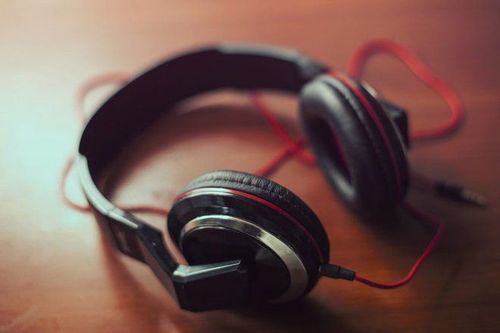
Âm nhạc có thể giúp phục hồi não bộ
2.5. Exercise restores the brain Most people realize that exercise offers a number of physical benefits:
Stronger muscles; Improve physical fitness and health; Sleep better. But physical activity also strengthens your brain, helping with brain repair. Exercise, specifically aerobic exercise can lead to improvements in cognitive abilities such as learning and memory.
According to a review from 2018, exercise also improves fine motor coordination and brain connectivity, and may protect against cognitive decline.
Another benefit of physical activity as a neuroplasticity exercise. It helps promote increased blood flow and cell growth in the brain, which is thought to be linked to reducing symptoms of depression.
If you exercise with other people or in a larger group, you will probably also see some social benefits. Strong social connections improve quality of life and mental health, so interacting with others more often can be another great way to boost brain health and help reduce stress. anxiety and depression symptoms.
Exercise recommendations can vary, depending on your age, ability and health, but you should be active at least a little bit each day.
2.6. Making art revitalizes the brain Creating art can help you see the world in new, unique ways. As you can use art to organize and express emotions, share personal experiences or gain insight into personal struggles.
Research from 2015 has shown that art forms like drawing and painting directly benefit your brain by boosting creativity and improving cognitive abilities.
Pursuing the arts can also help create new pathways of connections and strengthen existing connections in your brain, leading to better overall cognitive function.
You have no artistic experience, this is no problem. Like many other skills, artistic ability often improves with time and practice.
YouTube offers many painting tutorials, and your local library will likely have books on drawing or sketching for people of any skill level.
Even simple doodling can benefit the brain by activating the brain's default mode network, allowing your brain to briefly become unfocused.
This infrequent mental downtime is directly related to neural plasticity. Giving your brain a break can:
Enhance creativity; Interrupt unwanted habits; Help you find new solutions to problems in life. So the next time you find yourself waiting for something with empty hands, pick up your pen and doodle.

Tập thể dục giúp phục hồi não bộ
Art can also help promote relaxation, so consider building time for art into your week. Get your whole family involved in this activity, because everyone benefits here.
Experts previously believed that after a certain point in your life, your brain cannot change or develop any more. But now they know this is not true.
With a little time and patience, you can restore your brain function, which can help cure some mental health symptoms and protect against cognitive decline.
Please dial HOTLINE for more information or register for an appointment HERE. Download MyVinmec app to make appointments faster and to manage your bookings easily.
Reference sources: healthline.com, brainmaster.com



